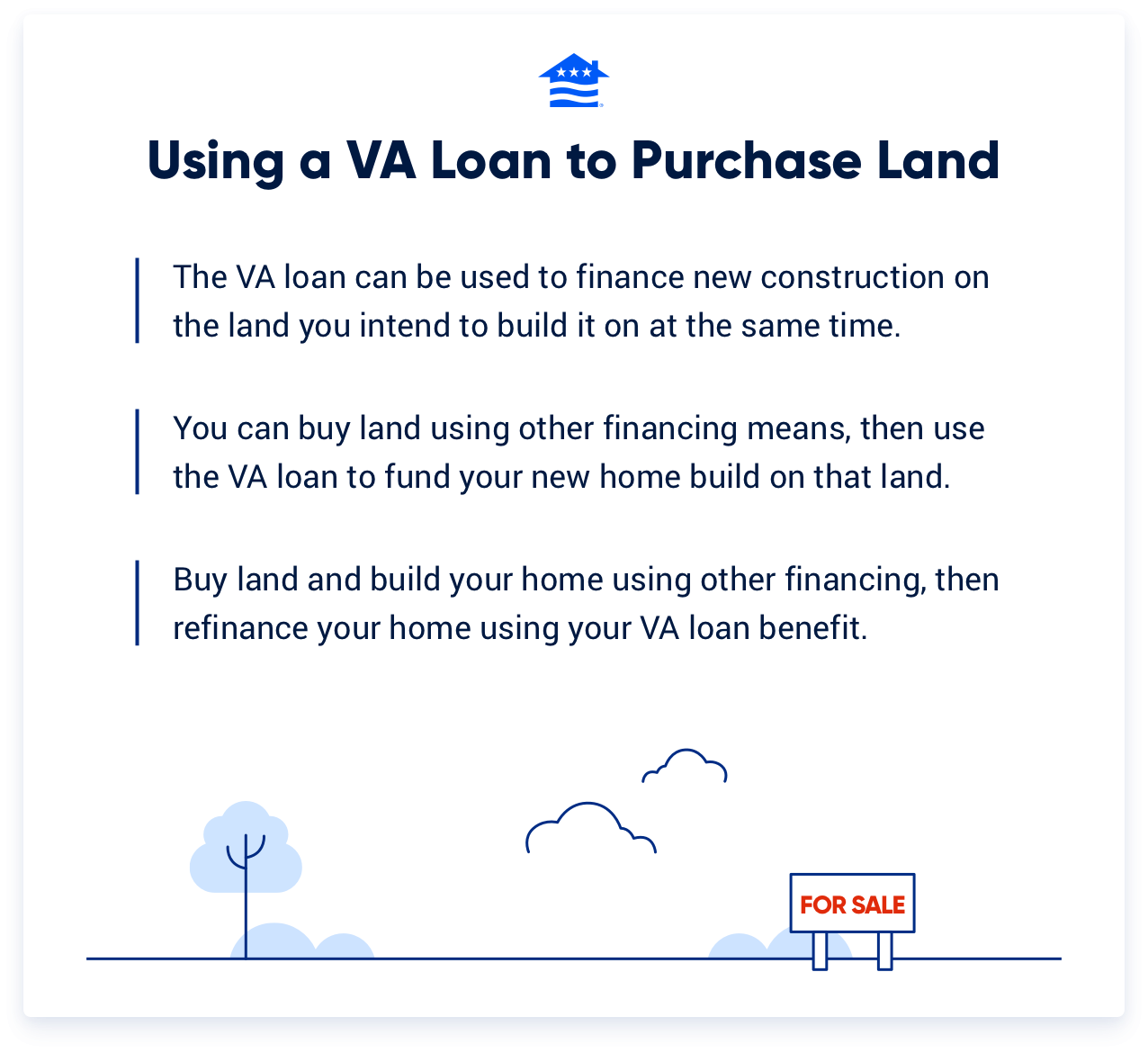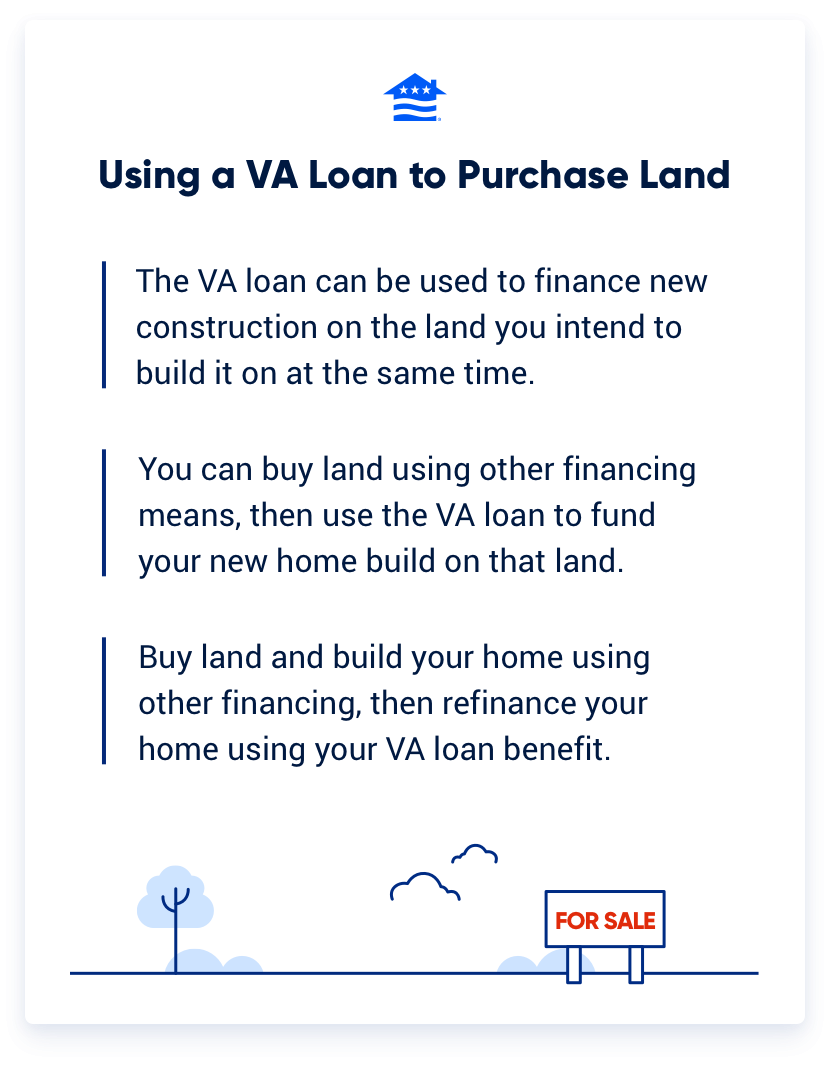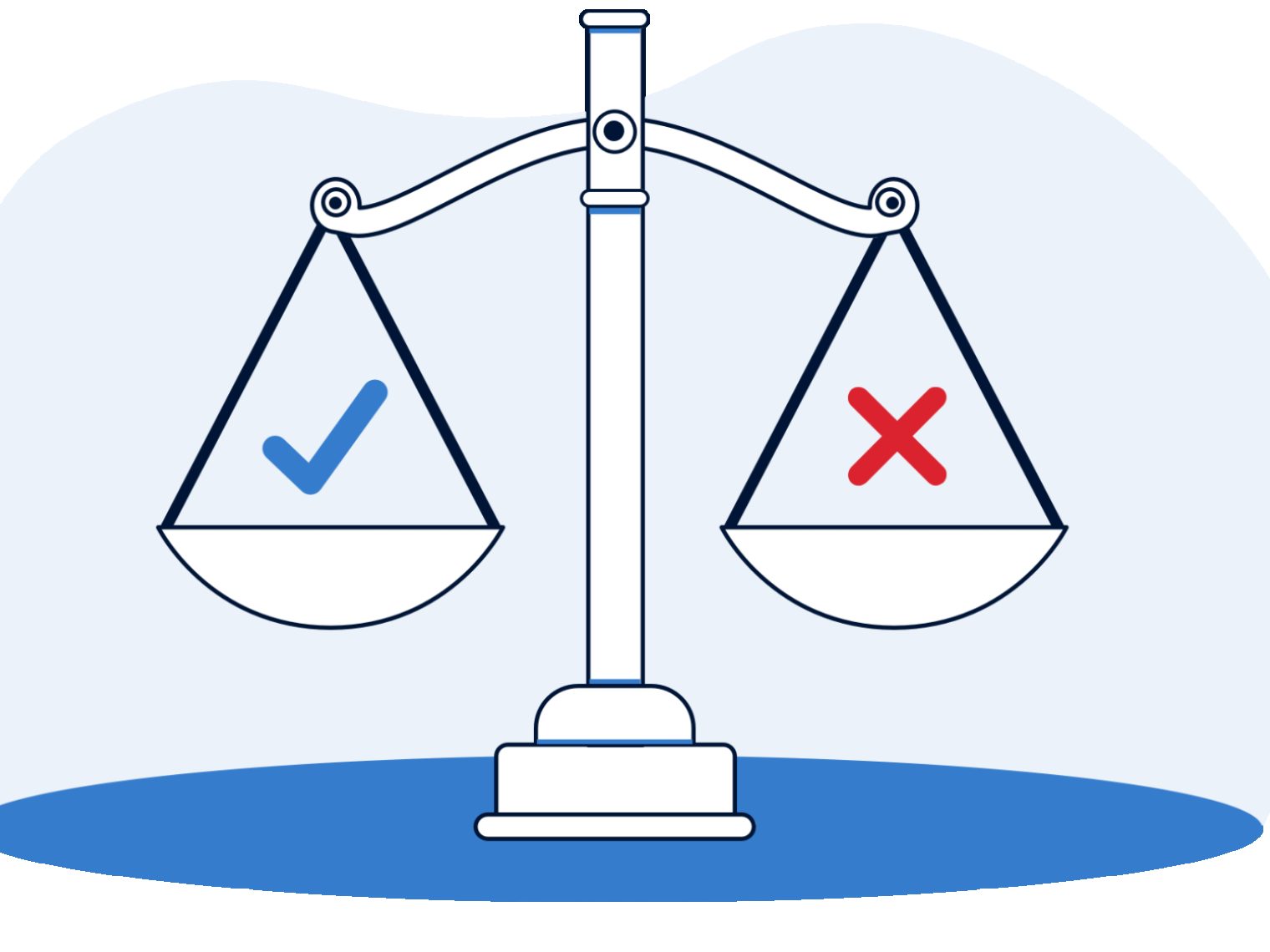At the end of the day, you can use a VA loan to purchase land, but it will come with some strict stipulations. Learn about these requirements and how you can purchase land with a VA loan.
Between money-saving benefits, such as $0 down and no mortgage insurance, veterans and service members wishing to purchase a home will be hard-pressed to find a better option than the VA loan.
But what if you don't wish to purchase a previously occupied home? Can the VA loan help you buy land and build a custom, more personalized home?
Can You Buy Land With a VA Loan?
Buying land with a VA loan is possible, but it must be done simultaneously with constructing a new home. You can't use a VA loan to purchase land by itself, even if you intend to build a home later.


How to Buy Land With a VA Loan
It sounds confusing, but the gist is simple: Buying only land? A VA loan won't work. Buying land and building on it right away? The VA will allow it.
There are generally three options if you're looking to buy land with your VA loan benefits:
- Use a VA loan to finance both the construction of your proposed home and the land you intend to build it on simultaneously.
- Buy land using some other means of financing. Then use your VA loan benefit to fund the construction of your home.
- Buy land and construct your home using some other means of financing - typically a short-term construction loan. Then, once finalized, refinance the construction loan into a VA loan.
If you already own land or inherited a parcel of it, you're free to use a VA loan to build upon it. And if you used a different loan type to purchase the land initially, you may be able to VA refinance once home construction is complete.
Does Veterans United Do Land Loans?
Veterans United, like most VA loan lenders, does not offer land loans or new construction loans. However, we do regularly work with Veterans interested in these kinds of loans. Veterans who find a builder or local lender to construct their home can often refinance their home into a VA loan after closing.
Get connected with an experienced VA lender to discuss your construction loan options.
Rules for Buying Land and Constructing a Property
As with all VA loans, there are some particular requirements you'll need to meet if you plan to buy land and construct a property using your benefits.
Here are the big ones:
- The property you construct can be no more than four units. Each unit must have its own water, sewage, gas, and electricity connections, and you must live in one of the units as your primary residence.
- The property must be affixed to a permanent foundation.
- The property must meet the VA's Minimum Property Requirements and must comply with all federal and local building standards.
- The land can't be located in a flood or noise zone (airstrip, highway, railroad tracks, etc.).
- The land can't be located near a landfill, dump, or hazardous material facility.
- The land can't be vulnerable to landslides, earthquakes, or other geologic instabilities.
Of course, you'll also need a valid Certificate of Eligibility to be eligible, and your builder must have a valid VA ID. Learn more about the ins and outs of VA construction loans here.
VA Loans for Land and Construction Aren't Common
While the VA technically allows it, most lenders don't offer VA loans for purchasing land and construction. These types of loans are generally riskier and, if you do find a lender that offers one, there may be additional down payment requirements to offset the risk.
You can avoid this by using a construction loan or other financing product to fund your land purchase and home construction, then refinance into a VA loan once the home is built. In this scenario, you'd then be eligible for the traditional, zero-down payment VA loan.
The Bottom Line
At the end of the day, you can use a VA loan to purchase land, but it will come with some strict stipulations. It also may not be the easiest or most affordable route toward homeownership.
How We Maintain Content Accuracy
Our mortgage experts continuously track industry trends, regulatory changes, and market conditions to keep our information accurate and relevant. We update our articles whenever new insights or updates become available to help you make informed homebuying and selling decisions.
Current Version
Feb 3, 2025
Written ByChris Birk
Reviewed ByDon Wilson
Content fact checked and reviewed by underwriter Don Wilson.
Related Posts
-
 VA Renovation Loans for Home ImprovementVA rehab and renovation loans are the VA's answer to an aging housing market in the United States. Here we dive into this unique loan type and the potential downsides accompanying them.
VA Renovation Loans for Home ImprovementVA rehab and renovation loans are the VA's answer to an aging housing market in the United States. Here we dive into this unique loan type and the potential downsides accompanying them. -
 Pros and Cons of VA LoansAs with any mortgage option, VA loans have pros and cons that you should be aware of before making a final decision. So let's take a closer look.
Pros and Cons of VA LoansAs with any mortgage option, VA loans have pros and cons that you should be aware of before making a final decision. So let's take a closer look.

